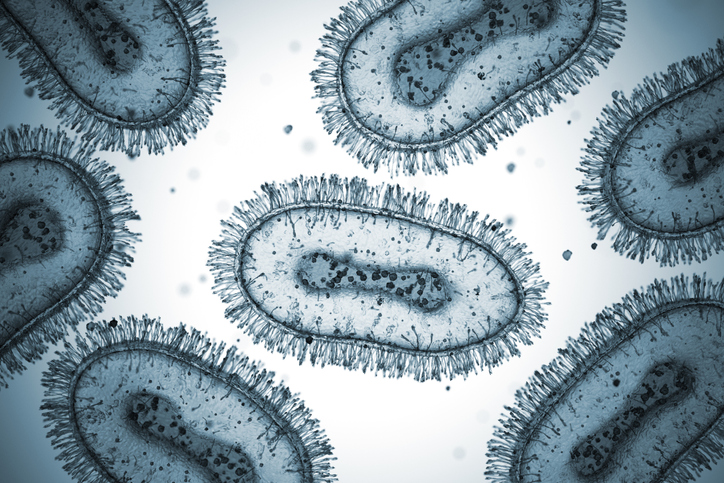Tag: Microbiology
-

Understanding How Poxviruses Hijack Protein Production
Northwestern Medicine scientists have uncovered new details on how poxviruses manipulate host cells to enhance their own protein production, according to a study published in Cell Reports.
-

Exploring How Antibiotic-Resistant Bacteria Become Aggressive
Some strains of an antibiotic-resistant bacteria may not turn out to be as aggressive as previously thought, according to a Northwestern Medicine study recently published in Nature Communications.
-

Robert Lamb, Renowned Expert on Influenza Virus, Dies at 72
Robert A. Lamb, PhD, professor emeritus of Microbiology-Immunology and of Molecular Biosciences and an internationally recognized authority on influenza, died September 2. He was 72.
-

Study Uncovers Relationship between HIV-1 Infection and Neurodegeneration
Northwestern Medicine scientists have discovered how HIV hijacks intracellular processes to proliferate and contribute to neurodegeneration, according to a new study published in Nature Communications.
-

First COVID-19 Vaccination Can ‘Hurt’ Subsequent Boosters
A new Northwestern Medicine study shows antibodies generated by prior vaccinations or infections can actually “hurt” subsequent COVID-19 booster shots.
-

Novel Therapeutic Targets Discovered for Triple-Negative Breast Cancer
Targeting cellular post-transcription mechanisms in the CD73 ectoenzyme may promote anti-tumor immunity and slow cancer progression in triple-negative breast cancer, according to a recent Northwestern Medicine study.
-

Exploring Genetic Regulation of Immunoglobulin A
Increased levels of the antibody immunoglobulin A (IgA) are correlated with the manifestation of several diseases and African ancestry, according to findings published in Nature Communications.
-

Study Identifies Mechanisms Promoting Bacterial Survival
Northwestern Medicine investigators have uncovered novel regulatory mechanisms that promote bacterial survival, according to findings published in PNAS.
-

Miller Named Distinguished Fellow of American Association of Immunologists
Stephen Miller, PhD, the Judy Gugenheim Research Professor of Microbiology-Immunology, has been named an American Association of Immunologists’ 2022 Distinguished Fellow.
-

How Herpes Checks Into the Nervous System for Life
A new Northwestern Medicine study has uncovered herpes’ sneaky strategy for infecting the nervous system, opening a path to long-needed vaccine development for the virus.






